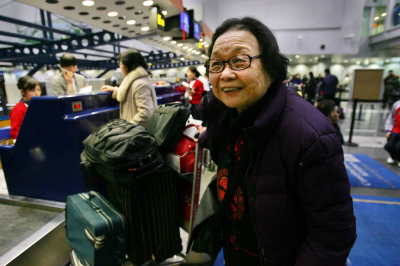The Washington Post-Whistleblowing doctor who revealed Chinas AIDS epidemic dies at 95
December 11, 2023 4 min 759 words
高垚杰医生去世,享年95岁,她曾揭露上世纪90年代中国爆发的艾滋病疫情,因此被中国当局逼迫流亡。这篇报道反映了高医生不畏强权,坚持揭露政府推动的血液采集计划引发的艾滋病流行。她对这场“人为灾难”毫不妥协,赢得国际赞誉却招致中国官方谴责。高医生在70多岁时仍屡次被赶出河南省的村庄,努力教育人们艾滋病的传播,而当地官员却否认疫情存在。尽管在纽约度过晚年,高医生持续为感染者游说,她的离世使中国失去一位坚定的艾滋病活动家。她的生平经历,从日寇入侵到文化大革命,构成中国百年巨变的缩影。高医生不畏压力,揭露真相是她唯一的目标。中国社交媒体洒满对高医生的哀悼,将她与其他敢言医生如李文亮相提并论,认为他们是民族英雄,虽未得到应有的荣誉,却遭到压制。这篇报道见证了高垚杰医生不屈不挠的精神,她的事迹将激励后人。
2023-12-11T03:07:09.395Z
Gao Yaojie, a doctor exiled from China under pressure from authorities after she exposed an AIDS epidemic in the 1990s, died at her home in New York on Sunday, little more than a week before her 96th birthday.
Gao, a retired gynecologist, gained international acclaim when she uncovered a blood collection program as the locus of an AIDS epidemic that ultimately contributed to tens of thousands of deaths, largely among poor farmers in rural China.
Her refusal to keep quiet about the scale of what she termed a “man-made catastrophe” drew accolades abroad and censure from Chinese officials.
China bars AIDS activist from traveling despite talk of ending discrimination
Well into her 70s, Gao was regularly chased out of villages across Henan province, where she insisted infection rates had skyrocketed because of the blood collection program and worked to educate people about the spread of AIDS while officials denied the existence of the outbreak.
She was heralded for her activism by Secretary of State Hillary Clinton but was put under surveillance in China and lived for years under house arrest before escaping to New York in 2009.
The only way she would return to China was as ashes, she predicted.
From her exile in New York, Gao continued to lobby on behalf of those infected while contending with her own health conditions that left her with difficulty eating and breathing.
Gao was frequently visited by a circle of Chinese supporters, according to Andrew J. Nathan, a professor of political science at Columbia University, who managed her affairs in the United States.
“She was a hero to them, very deeply respected and admired,” said Nathan, who confirmed her death.
After her experiences in China, Gao was wary of surveillance and vigilant that her voice not be co-opted for other causes. She was adamant that she not be viewed as aligned with other anti-Communist Party activists.
After living through decades of change and challenge, telling the truth about the AIDS epidemic was her only goal, she said.
Gao was born in Shandong province in 1927 and lived with physical reminders of the cataclysmic transformations that engulfed China over the past century. She walked with a limp after her feet were bound for several years as a child. She lived through the Japanese invasion of China, the civil war that delivered the Communist Party to victory, and hunger during the famine that followed. A beating during the Cultural Revolution permanently damaged her stomach.
Gao’s discovery of the extent of the epidemic in Henan began in 1996 when she examined a patient suffering from otherwise unexplained complications after surgery. The patient tested positive for AIDS and had recently received a transfusion from a blood bank.
Gao knew infection rates were on the rise, and determining the blood bank as the source made her realize the scale of infection was probably far greater than reported. The blood collection programs had been promoted by the government and were frequented by farmers selling their blood to supplement their incomes. Many collection points reused needles and mixed donors’ blood, and infection quickly spread.
Shuping Wang, whistleblower who exposed China’s HIV/AIDS crisis, dies at 59
Officials suppressed reporting about the scale of the epidemic. Gao defied the narrative and traveled to villages across Henan distributing AIDS prevention guides.
“I am not afraid of death,” she wrote in a 2020 essay. “What I am afraid of is that the real information on the AIDS epidemic in China will be forgotten.”
Chinese social media was awash with posts mourning Gao on Monday.
Some likened her to other whistleblowing doctors who refused to stay silent, including Li Wenliang, the Wuhan doctor who died within weeks of spreading the news about the coronavirus pandemic in early 2020.
“They are heroes of our nation. They did not get the honor they deserved but were suppressed,” said one post on Weibo.
Lin Shiyu, who cared for Gao early in her time in the United States and wrote a book about her life, said that, with the doctor’s passing, “we have lost a kind grandmother and a ballast stone of the nation.”
“I have not done anything extraordinary,” said Gao in a 2019 video address at the launch of Lin’s book. “What I have done is what everyone should do.”
Pei-Lin Wu contributed to this report.

